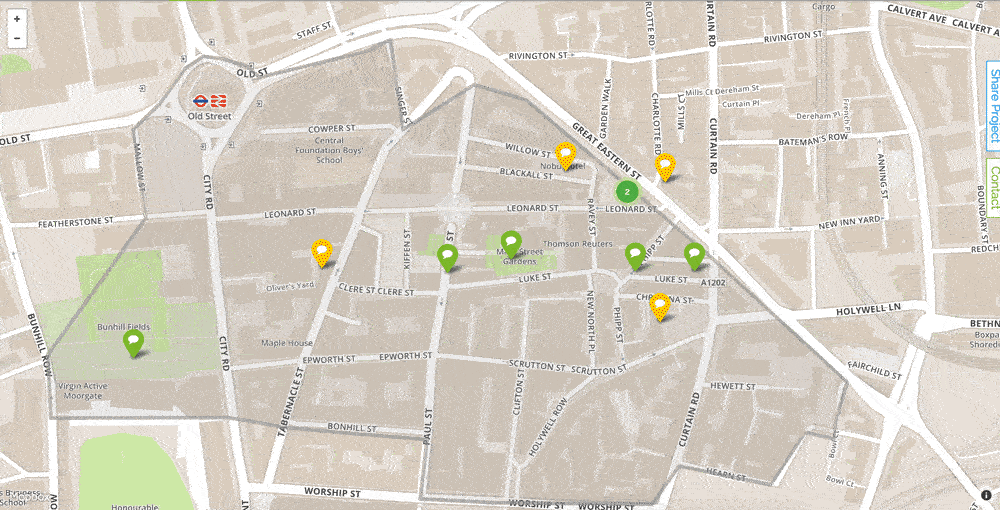Social proofing your engagements: why we use agreements at Commonplace

By Charlotte Cooper | 12/01/22 17:40
3 min read
Our consultations are full of comments, opinions and ideas. From active travel to planning and development, Commonplace provides digital community engagements for the public to express their views. Whether it is through dropping a pin on a map and answering a survey or agreeing to comments on specific proposals - it all helps add social proof to your engagements.
Find out the best ways to social proof your engagements with a free consultation with our expert team. Just click below.
What is ‘social proof?’
First things first, what is ‘social proof’ and why is it important for community engagements? There are a number of different types, but essentially it’s like a halo effect of communication- making judgements based on what you’ve heard other people say.
In the case of community engagement, an example of social proof would be people supporting your proposal because of popular comments or suggestions from other respondents in their community. This is where the agreement function comes into play.
Why do we have agreements?
People like to read other respondents’ comments - and frequently find other suggestions that they agree with. Imagine you are responding to a Commonplace; we have designed a way for you to show your agreement on Commonplace. You can react to other people’s comments by agreeing and sharing them. If you see another person’s comment that you like, you can easily show your support by clicking on the ‘agree button’. Easy!

Why is there no 'disagree' button?
If you’ve ever interacted with one of our online community engagements you’ll have noticed that there is no ‘disagreement’ button. This is deliberate - and we are sometimes asked why you can’t simply disagree as easily as you can agree. Commonplace is a platform for opinions. If you “Disagree” with an opinion, there is no clue as to what you think is a better suggestion or point of view. Agreeing is specifically linked to a visible, expressed idea.
Here is an analogy: you are standing at a crossroads with a friend and you are deciding which way to go. Your friend suggests a direction. If you agree with them, it is clear where you both will be heading. But if you just disagree, saying: “No, I won’t go there” there is no alternative direction suggested.
So what do I do if I disagree with someone's perspective?
Diverging views are always welcomed. It is important that a range of perspectives are considered, and therefore if you see a comment you disagree with, you can express your opinion by adding your own comment, which others can then agree with if they choose to.
For example, if there are two contradictory views about the same location, members of the community can show which of the two comments they agree with. If one contribution receives more agreements, it has collected more support from the local community.
A safe space to express views
Community engagement is about understanding community views, priorities and opinions so that a better, more inclusive decision can be made. To achieve this, we believe that engagement activities should support an open, respectful conversation that can happen without antagonism and animosity. People should feel safe to air their opinion without the fear of being mocked or criticised.
Today, expression on social media can be fuelled by an ambition to cause a stir. A scandal for the sake of controversy detracts from the social purpose of digital tools like Commonplace; amplifying public opinions to accelerate positive change. We need to protect voices and provide a comfortable space for expression, creating a place of uplifting stories, new learnings and respectful dissent.
The need for transparency
Our latest research addressed people’s attitudes to the planning system. We discovered that a large proportion of people feel that the system as a whole lacks transparency and that decisions are taken behind closed doors.
"52% of people thought that planning decisions about new developments were taken in secret to avoid public backlash."
Engaging for the Future, Commonplace
Such a lack of transparency inevitably leads to a lack of trust and becomes a barrier for engagement, often causing an instinctive intransigence towards change. Public consultations should therefore be open and transparent for everyone. Residents need to be able to see other people's comments, perspectives and agreements so that consensus can be sought. This is where social proof comes in again. Hearing voices of friends, neighbours and peers can help to reassure and strengthen thoughts around an engagement. In the age of social media, local democracy must embrace and be energised by digital conversations that are transparent, representative and honest.
At Commonplace that is precisely what we try to do. We firmly believe that communities that collaborate inclusively with each other and with other parties, are more resilient and better able to solve local problems. That is why the 'agreement' button is so important to our platform.
Book a free demo today and our team will show you exactly how our platform increases social proof and can get you more and better quality comments on your next community engagement.
Want to find out more about Commonplace?

